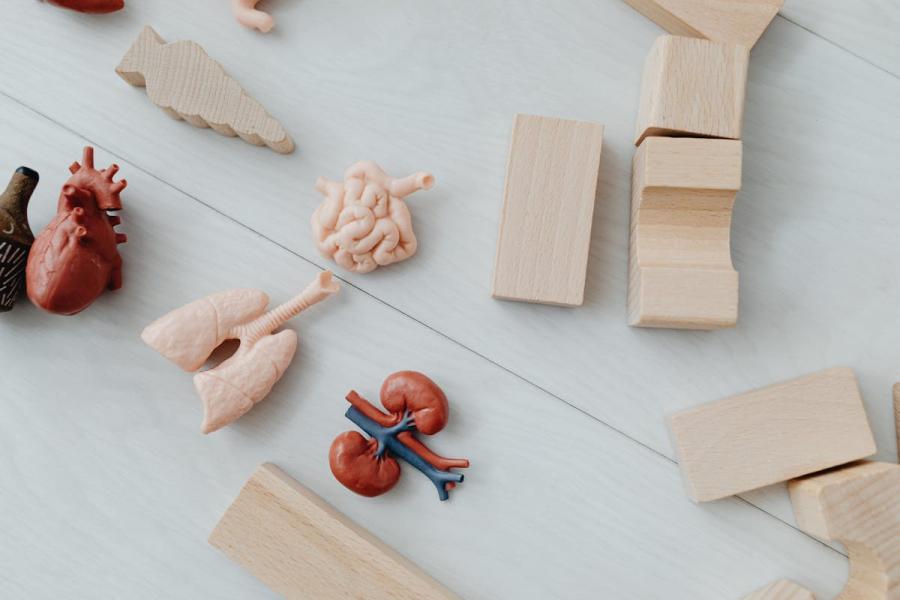
Common Habits That Can Harm Your Kidneys
Chronic kidney disease affects more than 850 million people worldwide and is projected to become the fifth leading cause of death by 2040. With this in mind, discover below which common habits can harm your kidneys.
The kidneys play a key role in maintaining health by filtering harmful substances, excess fluid, and electrolytes such as sodium and potassium from the blood. They also help regulate blood pressure, produce red blood cells, and maintain calcium balance in the body. When the kidneys are damaged, their ability to filter waste and maintain balance is compromised, leading to a buildup of toxins, fluid retention, and electrolyte imbalance. This can cause a range of health problems, from high blood pressure to heart disease and weak bones. Kidney damage can eventually progress to chronic kidney disease and kidney failure, writes Miss7.
Kidney damage can affect almost every part of your body — but there are simple lifestyle changes you can make right away to support kidney health.
Habits That Can Harm Your Kidneys:
Frequent Use of Painkillers
Common over-the-counter anti-inflammatory painkillers such as ibuprofen and aspirin can damage the renal tubules — small structures in your kidneys that return important substances and fluid to the blood. When there is inflammation and reduced blood flow to your kidneys, waste and fluid can accumulate in these tubules, disrupting their normal function and potentially damaging your kidneys. This is more likely in older adults or those with other health conditions.
People who already have chronic kidney disease should avoid these painkillers unless prescribed by a doctor who can monitor kidney function. To minimize the risk of side effects, use painkillers for the shortest possible time and at the recommended dosage.
Insufficient Water Intake
Your kidneys need water to flush out waste. People who don’t drink enough water may risk kidney damage, especially in hot weather. Dehydration causes the kidneys to produce highly concentrated urine with altered chemical and physical properties and higher levels of minerals and other waste products, increasing the risk of kidney stones and urinary tract infections that can damage the kidneys.
Some people with health conditions such as liver disease or heart failure may have fluid restrictions. However, for most people, it is recommended to drink 1.5 to 2 liters of water daily (about six to eight glasses).
Excessive Alcohol Consumption
The kidneys regulate the amount of water in the body. Alcohol can cause dehydration, which can impair their function. Excessive alcohol consumption can also raise blood pressure, damaging the kidneys. While many people know alcohol can contribute to liver disease, it can also negatively affect the kidneys, which have to work harder to process fluids and toxins. It is recommended that men and women do not consume more than 14 units of alcohol per week (ideally spread throughout the week with several alcohol-free days). This is roughly equivalent to one glass of wine (two units) or half a liter of light beer (two units) per day.
Smoking
Most people know smoking can contribute to cancer and heart disease. But smoking can directly damage the kidneys in several ways. Cigarette smoke contains toxic chemicals such as cadmium, which can damage the kidneys. Smoking also increases oxidative stress (when harmful molecules called free radicals damage cells in the body) and can narrow blood vessels and damage their lining, leading to kidney damage. Smoking also increases the risk of other conditions that can harm the kidneys, including diabetes and high blood pressure. Smoking is always harmful, so it’s best to quit immediately, with the help of a healthcare professional if needed.
Excess Weight
A healthy body mass index (BMI) is between 18.5 and 24.9. Anything above that is classified as overweight or obese. However, BMI is not the only indicator of excess weight — and sometimes it’s inaccurate. Waist circumference is a good indicator of belly fat (central obesity), which has been shown to increase the risk of heart disease and diabetes — two common causes of kidney disease. Obesity can directly damage the kidneys by disrupting chemical processes in fat tissue. A healthier diet combined with exercise can help you lose weight and maintain kidney health. Some studies have shown that physical activity reduces the risk of kidney disease — aim for 30 minutes of aerobic exercise five days a week, gradually increasing the intensity.
Unhealthy Food Choices
Ultra-processed food (UPF) is manufactured food that contains ingredients such as fats, sugars, salts, and additives, including artificial colors, flavors, and preservatives to make it taste better and last longer. Examples of ultra-processed food include meat products like sausages, soft drinks, and packaged bread. This type of food is linked to various health problems, such as obesity, heart disease, and type 2 diabetes. It has also recently been linked to kidney disease. One U.S. study followed 14,000 adults over 24 years. Those who ate the most ultra-processed food had a 24% higher risk of kidney disease. Nearly 5,000 of them developed chronic kidney disease.
A diet high in salt (sodium) can also be problematic, especially for people who already have kidney disease. The kidneys filter excess fluid from the blood and need a balance of sodium and potassium to do so. A high-salt diet disrupts this balance, making it harder for the kidneys to function and causing high blood pressure, which strains the kidneys and can lead to kidney disease. Limit salt intake to no more than six grams per day — the equivalent of one teaspoon.
Poor Sleep Quality
There is some evidence linking sleep quality and duration to kidney disease. One study found that poor sleep increases the risk of chronic kidney disease. Although the results of individual studies vary slightly, sleeping less than six hours or more than ten hours a day may harm your kidneys. For most people, the optimal amount of sleep is between seven and nine hours per night.
You can’t control factors like age and family history, but you can change many other habits and maintain kidney health.





